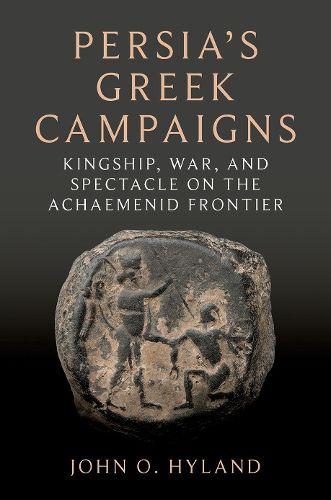Readings Newsletter
Become a Readings Member to make your shopping experience even easier.
Sign in or sign up for free!
You’re not far away from qualifying for FREE standard shipping within Australia
You’ve qualified for FREE standard shipping within Australia
The cart is loading…






The wars between the Achaemenid Persian kings and the Greek city-states (c. 499-449 BCE)--especially Xerxes' invasion of Greece (480-479 BCE)--are often remembered as foundational events in Greek history, and therefore, we often hear about them through Greek accounts. While the Persians left no campaign narratives to compare with Herodotus and Aeschylus, their documents, artwork, and artifacts offer the foundations for an illuminating reassessment of these pivotal conflicts. Using seals and documents from Achaemenid Persepolis, as well as comparative evidence from Persia's Mesopotamian imperial predecessors, this book shows that these conflicts did not emerge from policies of infinite expansion or iterations of "East vs. West" struggle. Instead, the Persians drew on a long tradition of Near Eastern royal campaigns, in which kings traveled to distant frontiers to advertise their heroism, divine favor, and universal power. Xerxes' journey from Iran to Athens marked the pinnacle of this tradition, combining ideological spectacles with masterful logistical preparation. It achieved its principal goals through the seizure and burning of Athens but then stumbled into embarrassing defeats at Salamis and Plataia, which posed new ideological challenges by undermining the Persian image of royal invincibility. The resulting transition to an era of diplomatic consolidation marked a vital step in the evolution of history's first "world empire."
$9.00 standard shipping within Australia
FREE standard shipping within Australia for orders over $100.00
Express & International shipping calculated at checkout
The wars between the Achaemenid Persian kings and the Greek city-states (c. 499-449 BCE)--especially Xerxes' invasion of Greece (480-479 BCE)--are often remembered as foundational events in Greek history, and therefore, we often hear about them through Greek accounts. While the Persians left no campaign narratives to compare with Herodotus and Aeschylus, their documents, artwork, and artifacts offer the foundations for an illuminating reassessment of these pivotal conflicts. Using seals and documents from Achaemenid Persepolis, as well as comparative evidence from Persia's Mesopotamian imperial predecessors, this book shows that these conflicts did not emerge from policies of infinite expansion or iterations of "East vs. West" struggle. Instead, the Persians drew on a long tradition of Near Eastern royal campaigns, in which kings traveled to distant frontiers to advertise their heroism, divine favor, and universal power. Xerxes' journey from Iran to Athens marked the pinnacle of this tradition, combining ideological spectacles with masterful logistical preparation. It achieved its principal goals through the seizure and burning of Athens but then stumbled into embarrassing defeats at Salamis and Plataia, which posed new ideological challenges by undermining the Persian image of royal invincibility. The resulting transition to an era of diplomatic consolidation marked a vital step in the evolution of history's first "world empire."